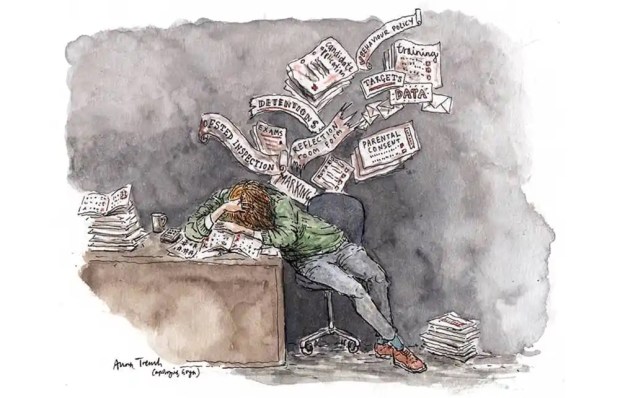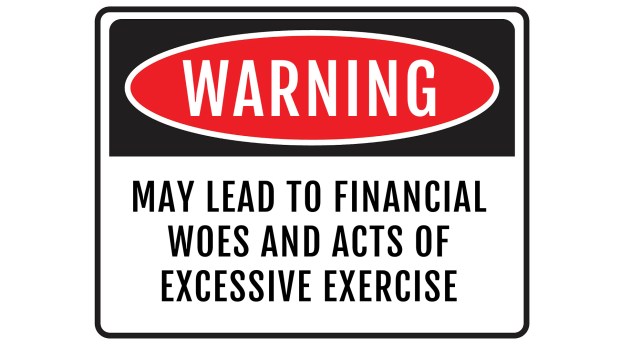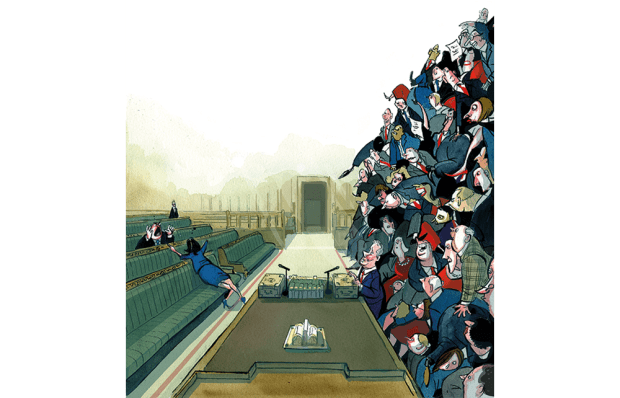How to stay safe
Sir: Mary Wakefield is correct to highlight the opprobrium heaped on anyone who suggests sensible safety advice to women (‘Don’t mix up murder and hate crime’, 2 October). It has long been the case that this is the one area where it is impossible to give crime prevention information without stirring up a hornet’s nest.
Motorists are constantly told not to leave valuables on display when they park their cars, as they may return to find their windows broken and the articles stolen. No one claims that motorists are being ‘victim shamed’ when given this advice, even though the police may well roll their eyes when you report the crime and your insurance company may be reluctant to pay out for the damage, because of what they will consider negligence.
Everyone, male or female, should be on their guard in a public place, what self-defence experts used to call ‘condition yellow’: aware of your surroundings, avoiding potential trouble. The utopian society where anyone can walk about with their head in the clouds has never existed and probably never will.
J.A. Stephens
Orpington, Kent
Hard on the Bard
Sir: Ysenda Maxtone Graham is a bit hard on Shakespeare for writing overlong plays (‘Time trial’, 2 October). True he began writing for leisured court performances with plays up to 3,500 lines long, whereas ‘the two-hour traffic of our stage’ can only have been up to 2,500 lines for Romeo and Juliet at the Theatre and the Globe, expanded by the time of the 1623 folio to 3,000 lines.
Expanded plays come in again with the opening of the indoor, warm and lighted Blackfriars Theatre in 1609: there the leisured classes could pay the entrance fees and have the time for expanded efforts, and delight in their more refined taste for lesser post-Shakespearean dramas.
Richard Malim
Lyme Regis, Dorset
Written by hand
Sir: ‘The creation of manuscripts more or less ceased in the course of the 16th century with the invention of printing,’ Jonathan Sumption writes (‘Smudged with human stories’, 2 October). In fact, printing was invented in the mid-15th century and was firmly established as a means of publication throughout Europe by the end of it. Nor did manuscript creation cease in the 16th century, as is evident from the frequent copies of such 17th-century poets as John Donne, George Herbert and (post Restoration) John Oldham and John Wilmot, earl of Rochester, among many others. Manuscript continued throughout the early modern period to be an important medium for both commercial and coterie publication.
A.S.G. Edwards
Enfield, London
Fish and farming
Sir: I agree wholeheartedly with Jeremy Paxman and share his concerns about the huge salmon farms on the west coast of Scotland (Diary, 2 October). However, it is important to note that there are a handful of smaller farms which take animal husbandry very seriously. These farms not only aim to eliminate the use of lice-killing chemicals but farm in very low-density pens, as well as feeding their fish using low-impact feed with no antibiotics, no growth promoters and no colourants.
The big farms are without a doubt causing enormous issues to the wild salmon stock, but it must be noted that arable farming is having as big an impact, if not bigger, on wild salmon migratory routes. As farming methods become more efficient, more insecticides and more fertilisers are used. These wash off the fields and into the streams and rivers and cause serious damage to all aquatic life as well as preventing the migratory salmon from returning to their natal rivers — which they do by way of olfactory sense.
It’s time to put pressure on land-based farmers to change the habitual use of chemicals.
Bertie Thewes
Inverawe, Argyll
I love my car
Sir: I have been a devoted fan of Rod Liddle ever since becoming a Spectator subscriber, but my feelings towards him were put under severe strain when reading his attack on Land Rover drivers in this week’s issue. I am 82 and on my fifth Land Rover Discovery. It is a superb vehicle and its emissions barely register at its regular MOT, because I look after it properly. I do not blame the current fuel crisis on Brexit (which I voted for) but on this incompetent government.
Lastly, since practically all Discoverys are powered by diesel engines, 16 cans of unleaded would be unlikely to get that driver very far.
John R. McErlean
Elstow, Beds
Moe memories
Sir: Nicola Christie asks whether Get Up, Stand Up! is one of the first all-black British musicals (‘Going for a song’, 25 September). To the best of my knowledge, Five Guys Named Moe, devised by Clarke Peters, was the first all-black home-grown musical, which ran in the West End for six years from 1990. The show also ran on Broadway from 1992. I was the musical arranger and West End musical director.
Neil McArthur
London SW1
The name of the road
Sir: Charles Moore says his satnav was flummoxed by the Welsh language (Notes, 25 September). Our French satnav was equally perplexed by the M25, as were we when it came up with ‘Monsieur Vingt-Cinq’.
Fay Garey
Tisbury, Wiltshire
Got something to add? Join the discussion and comment below.
Get 10 issues for just $10
Subscribe to The Spectator Australia today for the next 10 magazine issues, plus full online access, for just $10.
You might disagree with half of it, but you’ll enjoy reading all of it. Try your first month for free, then just $2 a week for the remainder of your first year.














Comments
Don't miss out
Join the conversation with other Spectator Australia readers. Subscribe to leave a comment.
SUBSCRIBEAlready a subscriber? Log in